Featured Resource
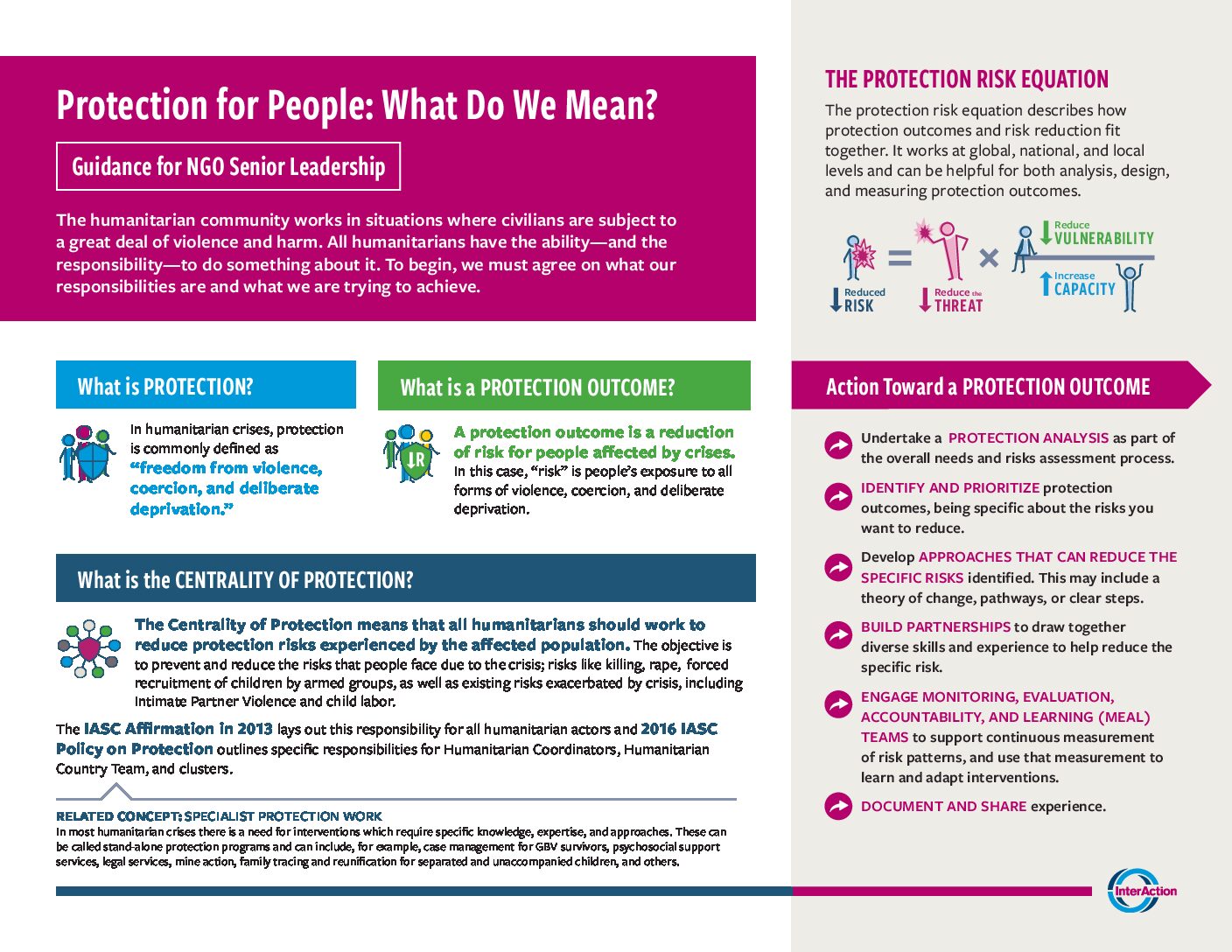 Protection for People: What Do We Mean? Guidance for Senior Leadership
Protection for People: What Do We Mean? Guidance for Senior Leadership

InterAction has published and collected resources including tools, reports, project evaluations, blogposts, and others from Members and partners that promote results-based approaches to protection since 2012; all of which can be found in this resource library. To explore practical case examples of RBP in practice, visit the case example page. Background photo By: Simon Moricz Sabjan is licensed under the CC BY-NC 4.0 license.
This briefing paper released in advance of the UN Refugee Agency’s (UNHCR) eighth annual High Commissioner’s Dialogue on Protection Challenges seeks to help re-think displacement in the context of today’s crises.
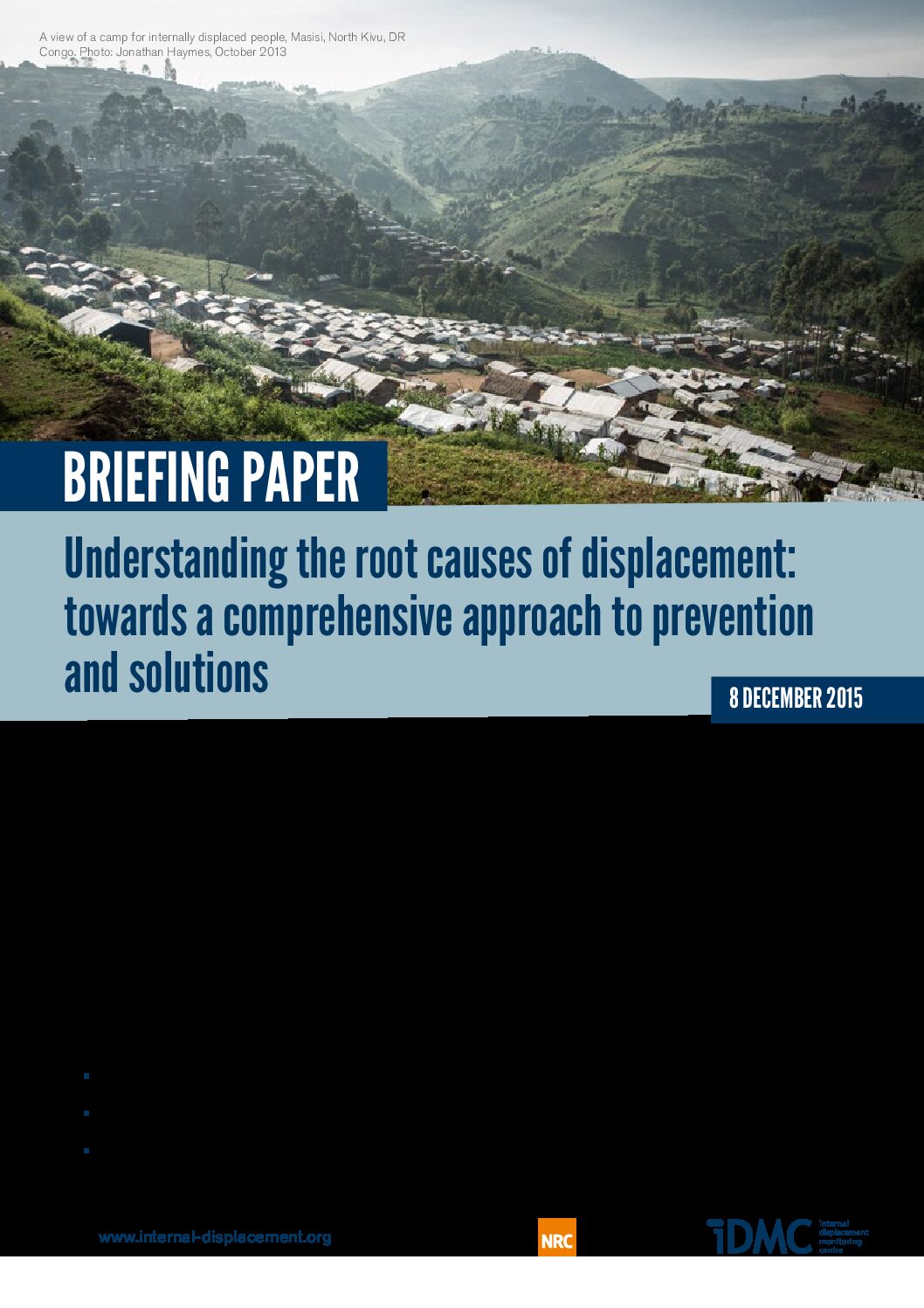
For the first time, InterAction is pleased to invite members of our broad community to participate in a contest to collect examples of results-based approaches to protection in practice!
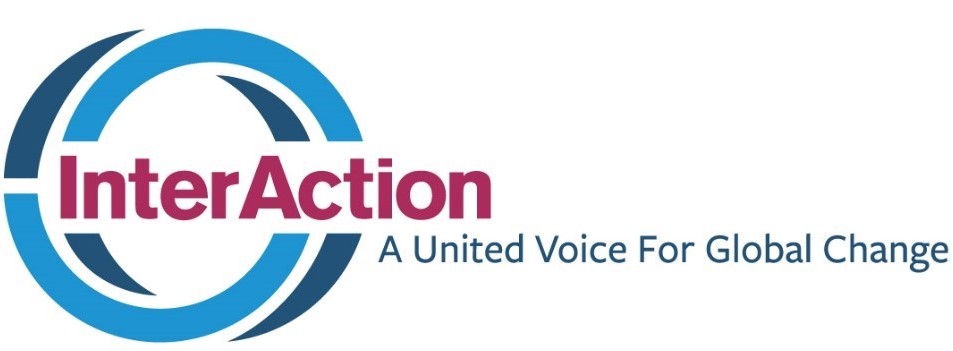
On March 5th, the U.S. Holocaust Memorial Museum convened a group of academics, practitioners, and policy-makers to take stock of existing knowledge on the role of civil society and civilian self-protection mechanisms in preventing and mitigating violence and mass atrocities, as well as identify gaps in knowledge and areas of future inquiry and research.

The International Committee of the Red Cross (ICRC) and the International Federation of Red Cross and Red Crescent Societies (IFRC), with support from the United Nations Office for the Coordination of Humanitarian Affairs (OCHA), have published a brief guide on how to use social media to better engage people affected by crisis.
While there are many approaches to conducting an analysis of possible futures, this document outlines an example of one step-by-step approach of how to build scenarios, which can be applied to a range of contexts and timeframes, from a protracted conflict to a sudden onset disaster. It articulates 9 steps within the chain of plausibility, and showcases an example from an ACAPS’ scenario building exercise in Nigeria.

Kumu is one easy-to-use online mapping tool that can help humanitarians navigate complexity. All that’s required is an internet connection.
This review of existing literature explores the meaning of the term “localization” and how it differs from “locally-led”, underscoring the importance of using the correct terminology to describe our work.
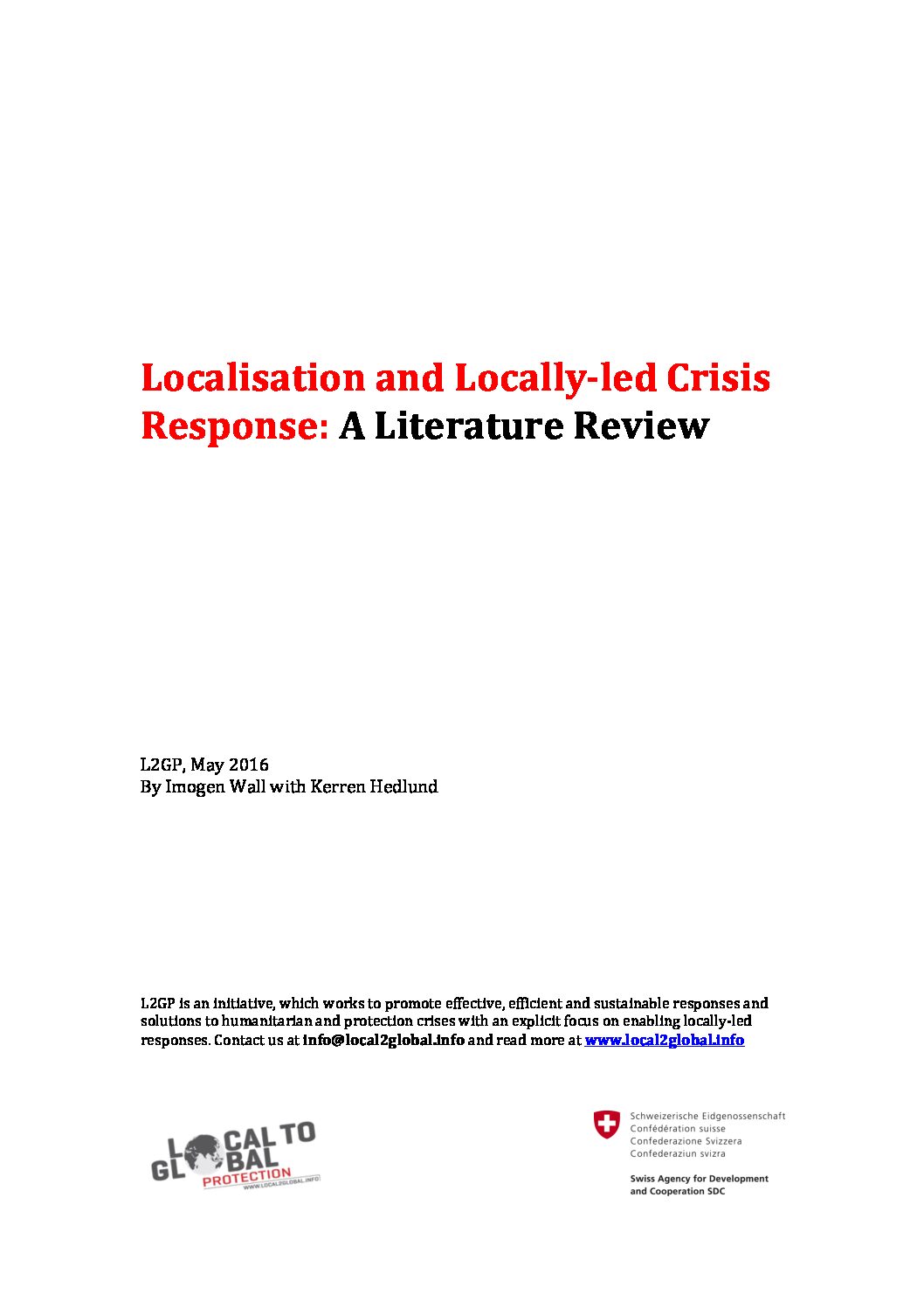
This briefing paper developed by InterAction provides practitioners – particularly international NGOs and donors – with a rationale and framework for promoting local ownership of evaluation.
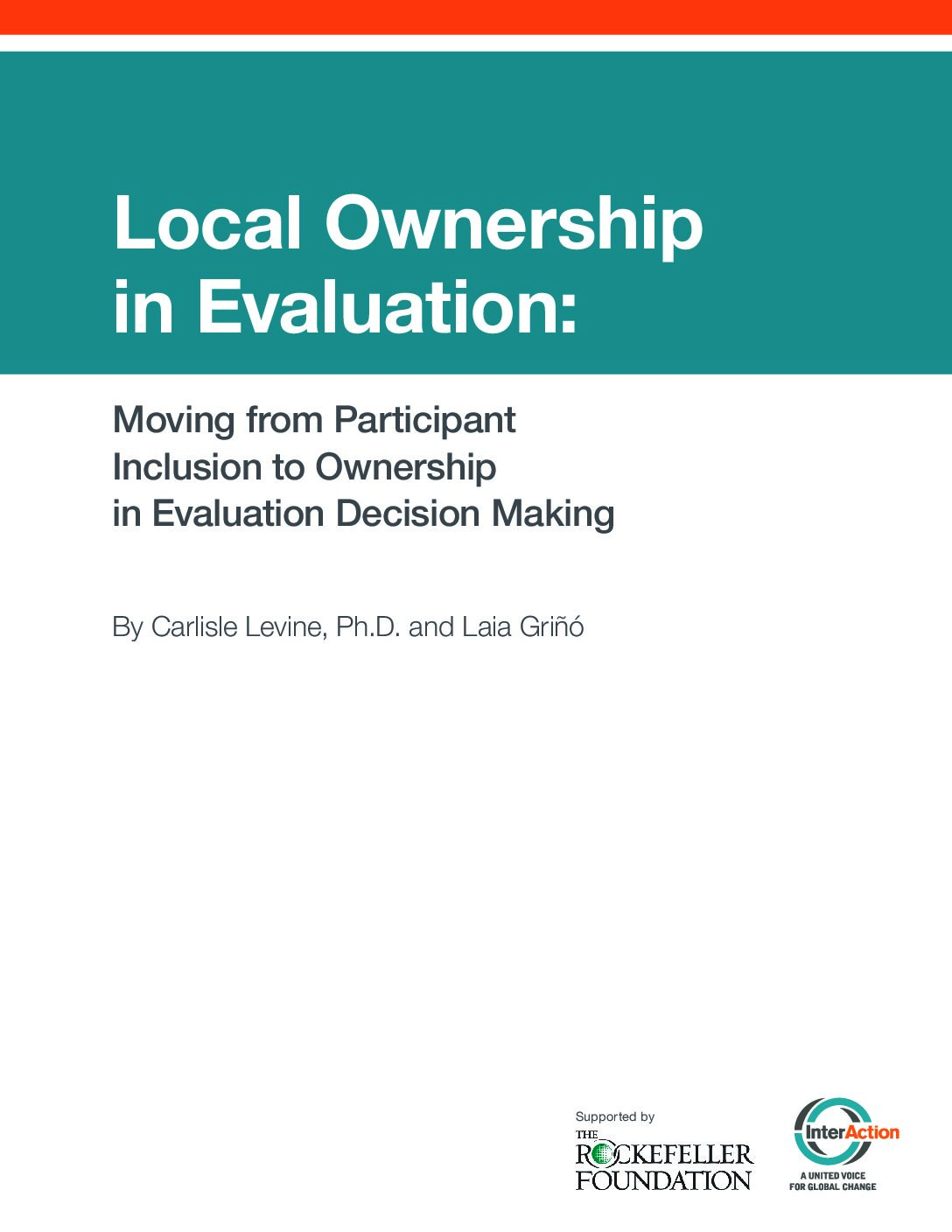
In this first of a series of papers on trends in Community Innovation, Gallen Maclusky will explore two approaches that have their roots in the practice and rigour of design: Design Thinking and Social Labs. These approaches draw heavily on Community Engagement, iterative and experimental processes, and creative collaboration as pathways to effect change.
This document provides a framework for assessment of submissions for the “RBP Good Practice Contest”. While these criteria are not exhaustive, they are intended to communicate the types of questions InterAction’s team will be asking themselves and reflecting on when reviewing submissions.

"*" indicates required fields